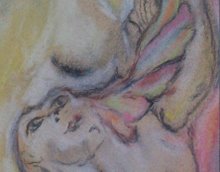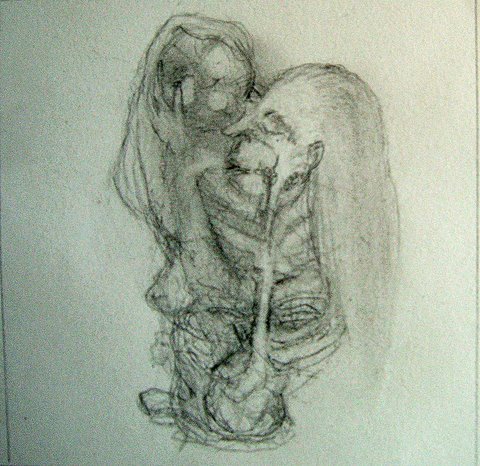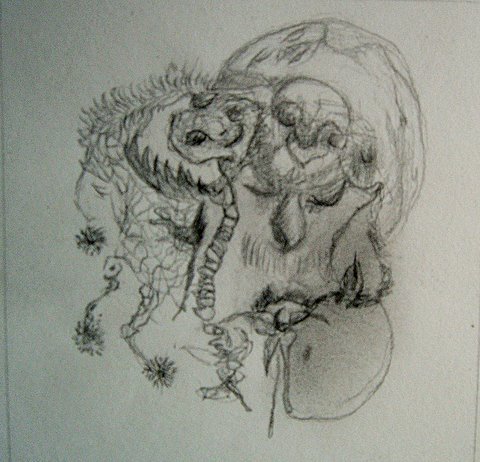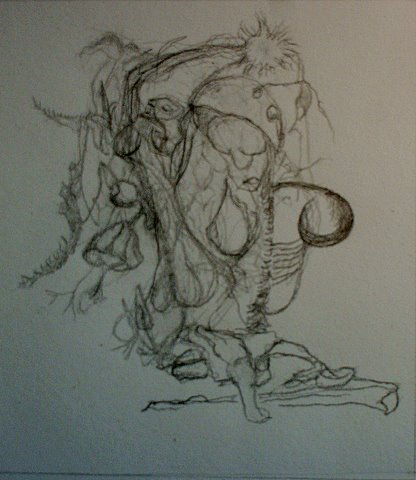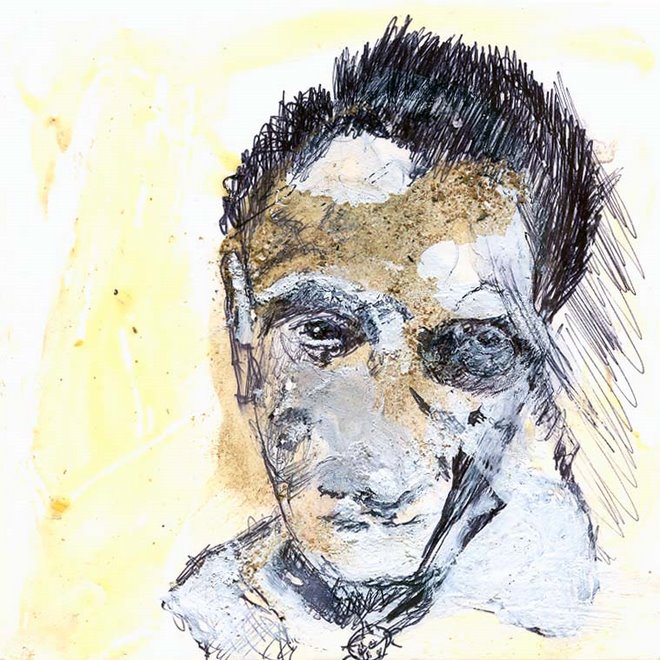Radiophrenia Glasgow will be playing a few sound art pieces of mine in the next week.
Tonight May 15 it's "Two Cities"
On May 20th, they will play
"Dream on Orpheus Street"
(to be covered in the very next entry to this blog).
Radiophrenia is accessible via the link below and they will be playing a great variety of audio art, plays, field recording, hoespiel and sound collages with commentary and , yes, even a sense of narrative purpose.
Until May 26th
http://radiophrenia.scot/how-to-listen/?fbclid=IwAR27Qqw1o_qOHLKtktrwIjwNqIK1LZrGEptcpXYm79zs5zJckZSDzczZesE
“Two Cities” is composed of spoken word, poetry, site-specific field recordings, & acousmatic sound. The work encompasses themes of ecology, personal position, isolation, community and the liquidity of modernity, in all it’s elusive forms. The reflection of the two artists dwelling in two cities funneled into one place here & now for the listener. Ilaria Boffa, lives in Padova, Italia and Jeff Gburek in Poznan, Polska. They contemplate together, and apart, the waters rising and receding in the wake of civilizations that mark the tide levels of the planet. Audio, music and composition by Jeff Gburek.
For those who missed the radio presentation, no FOMO!
You can find the whole available for download here. Support our work within your means. https://jeffgburekprojects.bandcamp.com/album/two-cities
Part 1. “The Shrinking Pond”
Begun in 2016, when the desiccation of the region had just about peaked and all local bodies of water seemed still to shrink from contact with the outside world, the recordings of an early Spring during the crisis of a great dry year. The environment of the pond in Poznan was documented on 3 different levels and these sound layers are revealed with an animated and multi-dimensional audio-texture. One strata is the literal binaural ambience, the noises of machines and animals heard within human range; the next, hydrophones in the river and pond, and then recordings of magnetic resonance fields (caused by electric cables, street lights, automobiles, cell-phones — all using a disembodied guitar pick-up to capture sounds that are not normally within the human auditory spectrum. These sounds were then re-composed into a series of free audio spirals. After having heard Ilaria Boffa’s work, “The Two Cities”, I decided to add another spoken word intervention of my own, recorded this November, contemplating the atmosphere of ecological indeterminacy and human fragility. Together with the following piece “Acqua Alta, the tables turned and now liquid nature is swelling almost perilously at the seams. We stretch the cable of trans-communication, make ghost-bridges between two cities far flung and yet conjoined by a common liquidity. Special thanks to Marco Lucchi for the fragment of his “November Song” that appears in the composition.
Part 2 “Acqua Alta”
Embedded in this track is the voice of Ilaria Boffa speaking on two occasions. The first are phrases commemorating the language of Zygmunt Bauman (the sociologist and philospher, born in Poznan) and the concept of Liquid Modernity while in the second moment she takes us on her journey to Venice amidst the floods in November where she recites a poem called “The Two Cities” which, in her own words, “deals with a profound sense of absence and distance, the acceptance of a painful looming scenario that echoes from a remote past. Sinking, drowning becomes simultaneously a very private and universal condition, a reflection on the global eco-dynamics currently shared by living and non-living beings.”
The compositions feature texts and field recordings made by Ilaria Boffa in Venice recomposed, reconfigured and supplemented by Jeff Gburek in the studio and around Poznan, featuring slide guitar, piano, field recordings, radio captures, incidental voices (birds even). Thanks to Kołorking Muzyczny for piano and “the space to think” and Karolina Ossowska (backing vocals/voices on “Acqua Alta” and for inspiration in general).
Jeff Gburek is a multi-instrumentalist, sound designer & composer who uses prepared guitar, radios, magnetic field antennae, theremin, manipulation of organic objects, & special microphones to bridge formal music & environmental sound sources, bringing multiple dimensions of sound into consciousness. He has lived in San Francisco, Montreal, NYC, Berlin, Brussels, Lyon and now Poznan. Collaborators include Michael Vorfeld, Tetuzi Akiyama & Keith Rowe of AMM. He’s performed at Unidram Festival in Potsdam, Ad Libitem Festival in Warsaw, FRIV Festival in Poznan. He currently leads workshops offers private lessons on improvised music, acoustic ecology, field recording, English and Italian at Kołorking Muzyczyny, Poznan.
http://transparent-abelard.blogspot.com/
http://soundcloud.com/jeff-gburek
https://jeffgburekprojects.bandcamp.com/
Tonight May 15 it's "Two Cities"
On May 20th, they will play
"Dream on Orpheus Street"
(to be covered in the very next entry to this blog).
 |
| Flood in Poznan, 1889 |
Radiophrenia is accessible via the link below and they will be playing a great variety of audio art, plays, field recording, hoespiel and sound collages with commentary and , yes, even a sense of narrative purpose.
Until May 26th
http://radiophrenia.scot/how-to-listen/?fbclid=IwAR27Qqw1o_qOHLKtktrwIjwNqIK1LZrGEptcpXYm79zs5zJckZSDzczZesE
“Two Cities” is composed of spoken word, poetry, site-specific field recordings, & acousmatic sound. The work encompasses themes of ecology, personal position, isolation, community and the liquidity of modernity, in all it’s elusive forms. The reflection of the two artists dwelling in two cities funneled into one place here & now for the listener. Ilaria Boffa, lives in Padova, Italia and Jeff Gburek in Poznan, Polska. They contemplate together, and apart, the waters rising and receding in the wake of civilizations that mark the tide levels of the planet. Audio, music and composition by Jeff Gburek.
For those who missed the radio presentation, no FOMO!
You can find the whole available for download here. Support our work within your means. https://jeffgburekprojects.bandcamp.com/album/two-cities
Part 1. “The Shrinking Pond”
Begun in 2016, when the desiccation of the region had just about peaked and all local bodies of water seemed still to shrink from contact with the outside world, the recordings of an early Spring during the crisis of a great dry year. The environment of the pond in Poznan was documented on 3 different levels and these sound layers are revealed with an animated and multi-dimensional audio-texture. One strata is the literal binaural ambience, the noises of machines and animals heard within human range; the next, hydrophones in the river and pond, and then recordings of magnetic resonance fields (caused by electric cables, street lights, automobiles, cell-phones — all using a disembodied guitar pick-up to capture sounds that are not normally within the human auditory spectrum. These sounds were then re-composed into a series of free audio spirals. After having heard Ilaria Boffa’s work, “The Two Cities”, I decided to add another spoken word intervention of my own, recorded this November, contemplating the atmosphere of ecological indeterminacy and human fragility. Together with the following piece “Acqua Alta, the tables turned and now liquid nature is swelling almost perilously at the seams. We stretch the cable of trans-communication, make ghost-bridges between two cities far flung and yet conjoined by a common liquidity. Special thanks to Marco Lucchi for the fragment of his “November Song” that appears in the composition.
Part 2 “Acqua Alta”
Embedded in this track is the voice of Ilaria Boffa speaking on two occasions. The first are phrases commemorating the language of Zygmunt Bauman (the sociologist and philospher, born in Poznan) and the concept of Liquid Modernity while in the second moment she takes us on her journey to Venice amidst the floods in November where she recites a poem called “The Two Cities” which, in her own words, “deals with a profound sense of absence and distance, the acceptance of a painful looming scenario that echoes from a remote past. Sinking, drowning becomes simultaneously a very private and universal condition, a reflection on the global eco-dynamics currently shared by living and non-living beings.”
The compositions feature texts and field recordings made by Ilaria Boffa in Venice recomposed, reconfigured and supplemented by Jeff Gburek in the studio and around Poznan, featuring slide guitar, piano, field recordings, radio captures, incidental voices (birds even). Thanks to Kołorking Muzyczny for piano and “the space to think” and Karolina Ossowska (backing vocals/voices on “Acqua Alta” and for inspiration in general).
Jeff Gburek is a multi-instrumentalist, sound designer & composer who uses prepared guitar, radios, magnetic field antennae, theremin, manipulation of organic objects, & special microphones to bridge formal music & environmental sound sources, bringing multiple dimensions of sound into consciousness. He has lived in San Francisco, Montreal, NYC, Berlin, Brussels, Lyon and now Poznan. Collaborators include Michael Vorfeld, Tetuzi Akiyama & Keith Rowe of AMM. He’s performed at Unidram Festival in Potsdam, Ad Libitem Festival in Warsaw, FRIV Festival in Poznan. He currently leads workshops offers private lessons on improvised music, acoustic ecology, field recording, English and Italian at Kołorking Muzyczyny, Poznan.
http://transparent-abelard.blogspot.com/
http://soundcloud.com/jeff-gburek
https://jeffgburekprojects.bandcamp.com/











